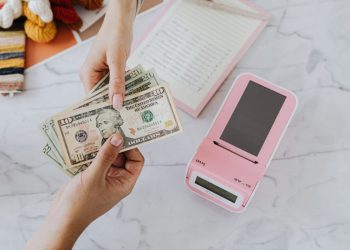So often, we are quick to place a value on what financial independence means to us. Many people state, “I want to be a uniform – so I need a million dollars in the bank”. Or maybe, “If I made 200 dollar 000 a year, I would always be financial free. ” And so take a moment and think: what on earth is my financial freedom find?
Wikipedia defines Financial Self-sufficiency as “a term commonly used to describe the state of obtaining sufficient personal wealth to reside in indefinitely without having to work make an effort to for necessities. Very well (Note that Wiki will not define Financial Freedom rapid it takes you to its Variety of definitions. ). Have you ever honestly sat down and established how much wealth you would reach financial freedom? Would it mean a certain amount in the traditional bank? Does it require a specific cash flow per month? Well, the answer can vary for everybody and will certainly count on your stage of lifestyle. Read on for some things to think of when trying to develop your own personal Financial Freedom Figure.
Let’s look at a pair of parts of the definition: having good personal wealth to live forever without working actively.
If you are 65, you could consistently be earning enough government retirement benefits not actively to work until your last days, that is known. Even in your twenties, you can become disabled, and govt assistance and disability insurance plans could cover your standard necessities for life. So, mature adults and people on disability assistance are technically financially cost-free. Their financial freedom range is based on a certain amount of money a month in government and incapacity
pensions. But realistically, we understand that anyone on a govt pension or disability might hardly jump up and down as well as say, “I’m free, I am independently wealthy, and I am rich! ” These people might have their monthly expenses covered, but unless they have some money reserves as well, they are restricted to spending only what their pensions bring in. For an individual in their 80s, this may be all right – their expenses tend to be low, they aren’t offering a family anymore, and they could not even have a spouse to care for. But then again, they may possess substantial medical and care-home expenses. So unless the senior has a significant net worth, he may not be monetarily free.
The twenty-something on disability will probably have a more challenging time, saying he is financially free. He may become single now, but when the spouse and children arrive his way, so will the mortgage payments and credit card bills. And also, the thought of living the next five decades on a set, minimal earnings is not all that appealing. Once again, he will be forced to spend just what his disability pension plan brings in. But, technically, they have reached financial independence.
Are these claims what you thought financial independence would look like? Well, for a few people, it might; as long as all your fundamental needs – food, drinking water, shelter – are fulfilled, shouldn’t you be delighted? Or are you on the other conclusion of the spectrum, thinking of watercraft, cars, vacations, and nice clothes when you dream of economic freedom?
For those leaning toward the “fancy” side of financial liberty, I ask you this: Can you not have those great things while you work? Naturally, you can. Do you feel rich if you accumulate those things? Probably, but it depends on whether you used credit card debt to acquire them or purchased your luxuries with dollars. You may feel rich by simply paying cash, but if you nonetheless need to work the next season to save up enough to acquire another luxury, are you genuinely free? And if you employed credit to purchase your items, you might feel rich while using the piece, but not so wealthy if you sit down to pay your credit balances.
Being financially 3rd party is more of a lifestyle good quality than quantity. You have to figure out what quality of life you intend to attain first, and then you can go about calculating a number to support your chosen lifestyle. As well as, your lifestyle quality will change throughout your life. You may consider yourself monetarily free during your child-raising many years if you’ve managed to either conserve enough in cash or earn enough in unaggressive income every year so that you do not need to go to a job every day in your children’s first five many years of life. Or maybe your independence comes from having the wealth gathered so that in your 40s, you could make five years off to return to school and get a college degree. Maybe financial independence is as simple as leasing out your residence for $2000 per month for a year and moving to a foreign nation to live on less than the actual $2000 per month your unaggressive income rental generates.
When you first thought of financial liberty, do you think of any of these situations? Many people do not – they only think of retirement at 65 or winning the lottery typically. Most people expect that they may always work until old age, and few people think of making passive income outside of their very own jobs.
Why can’t many of us do both? And precisely why can’t we be fiscally free for only a year, a few years, or even six months? You can, but we are programmed to concentrate “forever” and “never job again”. I would sure always be happy and feel prosperous and free if I was to say, “Yes, I stayed at at home with the kids while that they grew up, because I was fiscally free”, or “I put in a year in Costa Saludable
learning Spanish, because I was fiscally free for the year”. Thus I go back to work after individual events in my life – big-deal. At least I could say My spouse and I reached financial independence ahead of my meagre government old age pension kicks in, along with my hips or cardiovascular system giving out. And you can bet your savings account that after being “free” for any time, your cravings to generate more passive cash flow will be ferocious: more residual income means more liberty.











